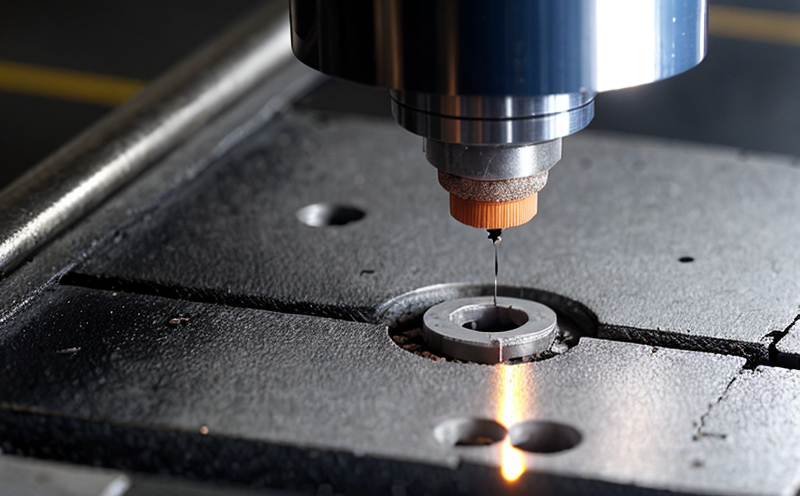JEDEC JESD22-A119 Electrical Overstress Failure Testing
The JEDEC JESD22-A119 test is a critical component of semiconductor and microchip quality assurance, focusing on the evaluation of devices' resistance to electrical overstress (EOS). This test ensures that components can withstand unexpected high-voltage transients without failing, thereby safeguarding against potential failures in end applications.
The JESD22-A119 standard is widely recognized for its rigorous approach to stress testing. It simulates the harsh operating conditions that semiconductor devices encounter during manufacturing and use. The test involves applying controlled overvoltages to the device under test (DUT) until failure occurs or a specified threshold is reached. This process not only identifies weak points within the design but also provides insights into the reliability of the device.
The JESD22-A119 test is particularly important in industries where high-reliability components are essential, such as automotive electronics, aerospace, and medical devices. By adhering to this standard, manufacturers can ensure compliance with international standards like ISO 9001 for quality management systems and IEC 61238-2 for semiconductor device reliability.
During the test, a DUT is subjected to an overvoltage stress pulse that is specified in the JESD22-A119 standard. The pulse duration and amplitude are carefully controlled to simulate real-world conditions. The specimen preparation involves selecting representative devices from the production lot, ensuring they meet all electrical and mechanical specifications. Once prepared, these devices undergo rigorous testing under a controlled environment.
The instrumentation used for this test includes high-speed digital oscilloscopes, voltage sources capable of delivering precise overvoltages, and data acquisition systems to capture critical parameters such as current and temperature. The testing process is highly automated to ensure consistency and repeatability. Upon completion, the results are analyzed using specialized software that compares the observed behavior against predefined acceptance criteria.
The JESD22-A119 test provides valuable insights into the reliability of semiconductor devices. By identifying potential weaknesses early in the development cycle, it helps prevent costly failures downstream. This ensures that products meet stringent quality standards and customer expectations. The test also aids in optimizing design parameters such as voltage ratings and protection mechanisms to enhance overall performance.
In conclusion, JEDEC JESD22-A119 electrical overstress failure testing is an indispensable tool for ensuring the reliability and longevity of semiconductor devices. Its rigorous methodology guarantees that only high-quality components reach the market, thereby fostering trust in end-user products.
Why Choose This Test
- Compliance with international standards such as ISO 9001 for quality management systems.
- Ensures high reliability of semiconductor devices in harsh operating conditions.
- Identifies potential weaknesses early in the development cycle, optimizing design parameters.
The JESD22-A119 test is a cornerstone of semiconductor and microchip quality assurance. Its rigorous methodology guarantees that only high-quality components reach the market, enhancing overall product reliability and customer satisfaction.
Customer Impact and Satisfaction
- Enhances trust in end-user products by ensuring high-quality and reliable semiconductor devices.
- Promotes longer-lasting and more dependable components, leading to increased customer satisfaction.
- Supports compliance with international standards, meeting stringent quality requirements.
The impact of JESD22-A119 extends beyond the testing laboratory. By ensuring that semiconductor devices meet high-quality standards, this test significantly contributes to the overall reliability and longevity of end products, fostering trust and satisfaction among customers.
Competitive Advantage and Market Impact
The JESD22-A119 test provides a competitive edge by ensuring that semiconductor devices meet stringent quality standards. This enhances product reliability, which is crucial in industries like automotive electronics, aerospace, and medical devices. By adhering to this standard, manufacturers can differentiate their products in the market, attract more customers, and build long-term partnerships.
The test also supports compliance with international standards such as ISO 9001 for quality management systems and IEC 61238-2 for semiconductor device reliability. This ensures that devices are not only reliable but also meet industry-wide expectations, thereby enhancing market impact.





